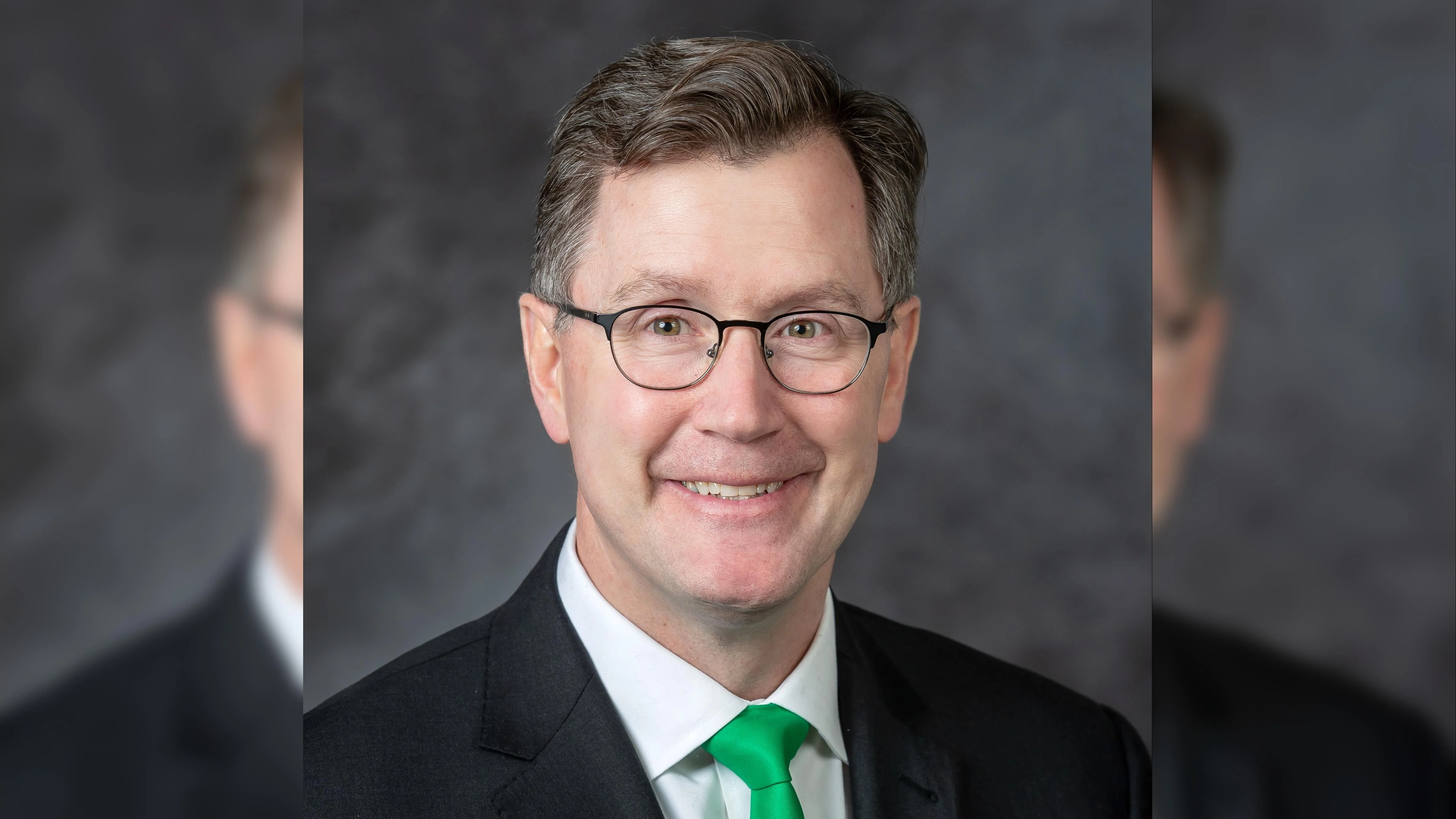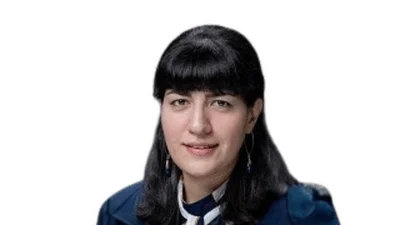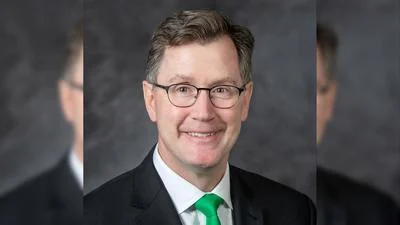Dr. Andrew Armacost, President | University of North Dakota
Dr. Andrew Armacost, President | University of North Dakota
A coordinated team of dietitians, chefs, trainers, and administrators at the University of North Dakota (UND) is working to support student-athletes by focusing on sports nutrition and wellness.
Jennifer Haugen, a board-certified dietitian with expertise in sports dietetics, has recently started working with UND’s student-athletes. She is currently the only full-time sports dietitian in the state dedicated to collegiate athletics. Employed by Sanford Health, the official physician provider for UND Athletics, Haugen advises coaches, chefs, and athletes on nutrition.
“I tell athletes to think of their bodies like a car,” Haugen said. “If you’re going fast and far, you’re probably going to need to fuel up again. It’s the same with your body — you need to put in the right type of fuel to make it go.”
Haugen emphasized that each athlete’s nutritional needs are unique due to factors such as body composition, metabolism, and the specific demands of their sport. She offers one-on-one consultations to any student-athlete upon request and encourages them to take advantage of this service. Coaches can also request team lectures on topics like meal preparation, healthy eating while traveling, and calorie management.
“Sometimes it’s nice to just sit with them individually,” Haugen said. “Everybody has different preferences. Some have intolerances or dislike certain foods and are not quite sure how to navigate that. Managing class schedules, practices, games and travel — all those things come up.”
Haugen also mentors students in UND’s Nutrition & Dietetics program, which she believes offers strong career prospects for graduates. She noted that the success of student-athletes relies on collaboration across departments. “We work as a well-oiled machine in sports medicine — whether it be sports psychologists, athletic trainers or physicians,” she said.
Steve Westereng, chair of the Department of Sports Medicine at UND’s School of Medicine & Health Sciences, highlighted the importance of building personal relationships with student-athletes. Westereng oversees a team of 12 athletic trainers and noted that since Bill Chaves became Director of Athletics in 2018, there has been an increased focus on areas such as sports medicine, strength and conditioning, mental health, and nutrition under NCAA guidelines.
“My goal is trying to get people embedded,” Westereng said. “Without them being embedded — whether that’s with mental health or nutrition — you’re very limited in what you can do. Once you start showing up to practices, or having a dietitian attend meals, the student-athletes realize they’re accessible, and that’s where the knowledge grows.”
“The addition of mental health and nutrition support has been great,” Westereng added. “Small details are important — like the timing of when you eat. Plus, athletes have to balance two full-time jobs — school and their athletic commitments.”
Westereng also pointed out that these support services contribute to academic success among athletes. “UND has a lot of really good students,” he said. “You look at the GPA of the entire athletic department being above 3.0 — that’s unbelievable.”
For teams such as hockey, basketball, volleyball, and soccer, shared practice schedules and similar dietary needs make group meals practical. Rob Peterson, catering kitchen manager at Ralph Engelstad Arena, leads a team responsible for feeding athletes as well as catering suites and preparing meals for media and arena staff during events. Peterson described long workdays during hockey series weekends and noted the high caloric needs of hockey players.
“Hockey players, you have to realize, eat about three times what an average person would,” Peterson said. “There are 27 players, so it’s like cooking for over 60 people.”
Peterson explained how team meals have evolved since he started at The Ralph in 2002. Initially, teams did not receive dedicated meals at the arena. After former hockey coach Dave Hakstol requested meals for players, Peterson began preparing pregame meals and later expanded service to include breakfast and postgame meals for several teams.
Peterson described changes in meal offerings over time: “Back when we first started doing postgame meals, the guys just wanted something to grab and go like sloppy joes or pizza,” he said. “Now with the nutritionists, it’s as healthy and homemade as we can get. Nothing fried — everything is baked.”
When teams travel for competition, their nutrition plans often continue off-campus. Westereng noted that football teams stay at hotels where meals can be efficiently provided according to dietary guidelines set by Haugen.
While some teams dine together both at home and on the road, others—such as track and field—take a more individualized approach to nutrition.



 Alerts Sign-up
Alerts Sign-up